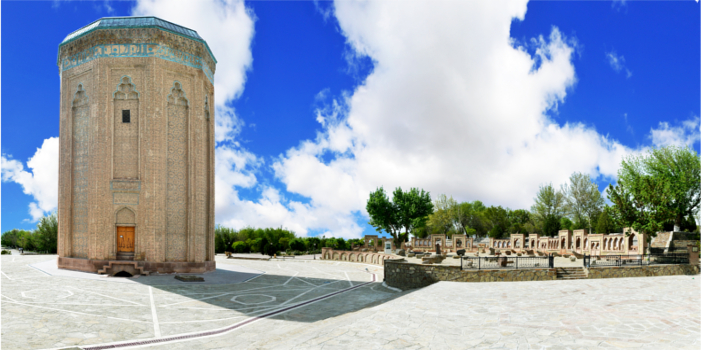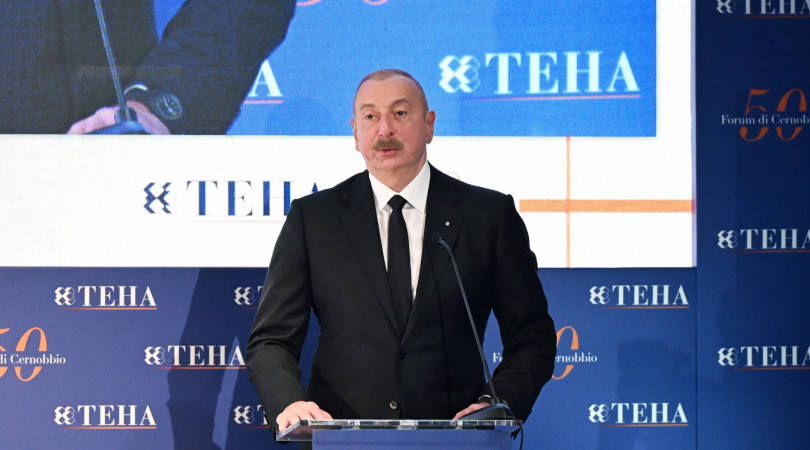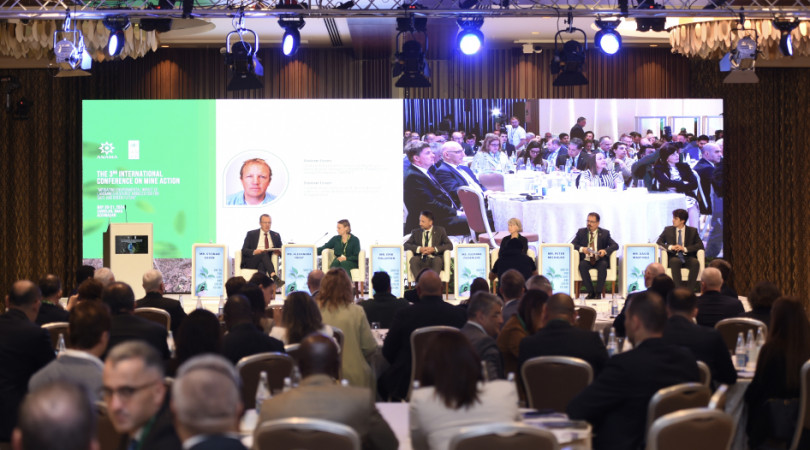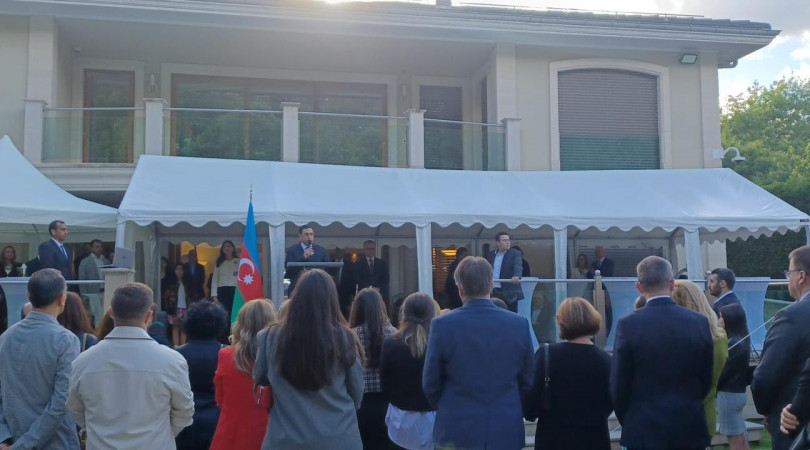Nakhchivan, Capital of Islamic Culture 2018
Asian Region’s Capital of Islamic Culture 2018 -
OFFICIAL WEB-SITE (http://imp.nakhchivan.az/en/)
ISESCO
The history of Nakhchivan city dates back to 5.000 years ago, making it as one of the oldest cultural centers in the Middle East. It is the capital of the Nakhchivan Autonomous Republic which covers 5.500 square kilometers, has a population of about 450.000 people, and is bordered by the Republic of Turkey, the Islamic Republic of Iran and the Republic of Armenia.
The legal status of the Nakhchivan Autonomous Republic goes back to 1921 when they adopted and signed two important international agreements (The Moscow Treaty -Article 3- and the Kars Agreement -Article 5-) laying down the bases of autonomy and the official borders of the Nakhchivan Autonomous Republic as an integral part of the Republic of Azerbaijan.
The region of Nakhchivan, composed of the Nakhchivan city and 7 administrative regions with 5 towns, 8 settlements and 206 villages, is an autonomous state within the Republic of Azerbaijan under its current Constitution (1995).

The “Alinjagala” site, “Julfa”, the Nakhchivan Autonomous Republic
A Supreme Assembly, of 45 deputy members for 5 years of office’s term, constitutes the higher legislative power in the state. The Chairman of this assembly, according to the Republic of Azerbaijan’s Constitution and the Nakhchivan Autonomous Republic’s one, is the highest official of Nakhchivan. The executive power is exercised by the Cabinet of Ministers, and the judiciary one by the courts.
Thanks to its strategic location, the Nakhchivan region has a rich history in the Caucassus zone, and the development of its culture is an enrichment vector of the ancient Azerbaijani civilization. During history, the Nakhchivan city was the capital of different states and dynasties such as the “Atabeg” dynasty of Azerbaijan (XIIth century), the Nakhchivan “khanate” dynasty (XVIIIth and XIXth centuries) and the “Araz-Turk” Republic (beginning of the XXth century).

The Nakhchivan city
Nakhchivan is rich with ancient and medieval Turkish-Islamic culture remnants and historical monuments, such as ancient settlements, cities, magnificent fortresses, natural monuments, tombstones and mausoleums, which are great instances of heritage architecture.

The “Jame” Mosque

The “Mu’mine Khatun” Tomb

The “Khan” Palace
More than 1.200 historical monuments have been inventoried in Nakhchivan, 57 of which are renowned internationally and 496 nationally. In the Nakhchivan city are located many key monuments such as the “Jame” Mosque dated on the XVIIIth century, the “Mu’mine Khatun” Tomb which is currently an open-air museum, erected in the XIIth century by the “Ildegizid Atabey” of Azerbaijan, “Jahan Pahlawan”, in honor of his first wife “Mu’mine khatun”, and the “Khan” Palace built in the XVIIIth century and showing a museum of architecture and history. The city of Nakhchivan, as its region, is also renowned for its intangible heritage diversity and its various elements like oral expressions, traditional costumes and songs, crafts skills…telling thus the depth of the Islamic civilization in the region.
Nakhchivan is therefore a land of centuries-old achievements in Islamic culture, which has always respected and preserved national, human and religious values and traditions, and showed a great interest to restoration, preservation and promotion of its historical monuments, intangible heritage and culture.
In addition, the development of science and education has been one of Nakhchivan’s priorities, in such a way as to promote its contributions and achievements, especially with regard to Islamic culture. Many institutions and centers are working in these educational and cultural projects, such as the Nakhchivan Branch of the Azerbaijan National Academy of Sciences, the Nakhchivan State University, the Nakhchivan University and the Nakhchivan Teachers Institute, in addition to 3 secondary specialized schools, Heydar Aliyev Military Lyceum, 5 vocational schools and 216 secondary schools.
Taking into account the historical and cultural potential of the Nakhchivan city and its surroundings, its Islamic historical and cultural achievements, and its developmental prospects, it was proclaimed as the Asian region’s Capital of Islamic Culture for 2018 at the 6th Conference of Culture Ministers of OIC Member States, held in Baku, in October 2009.


















